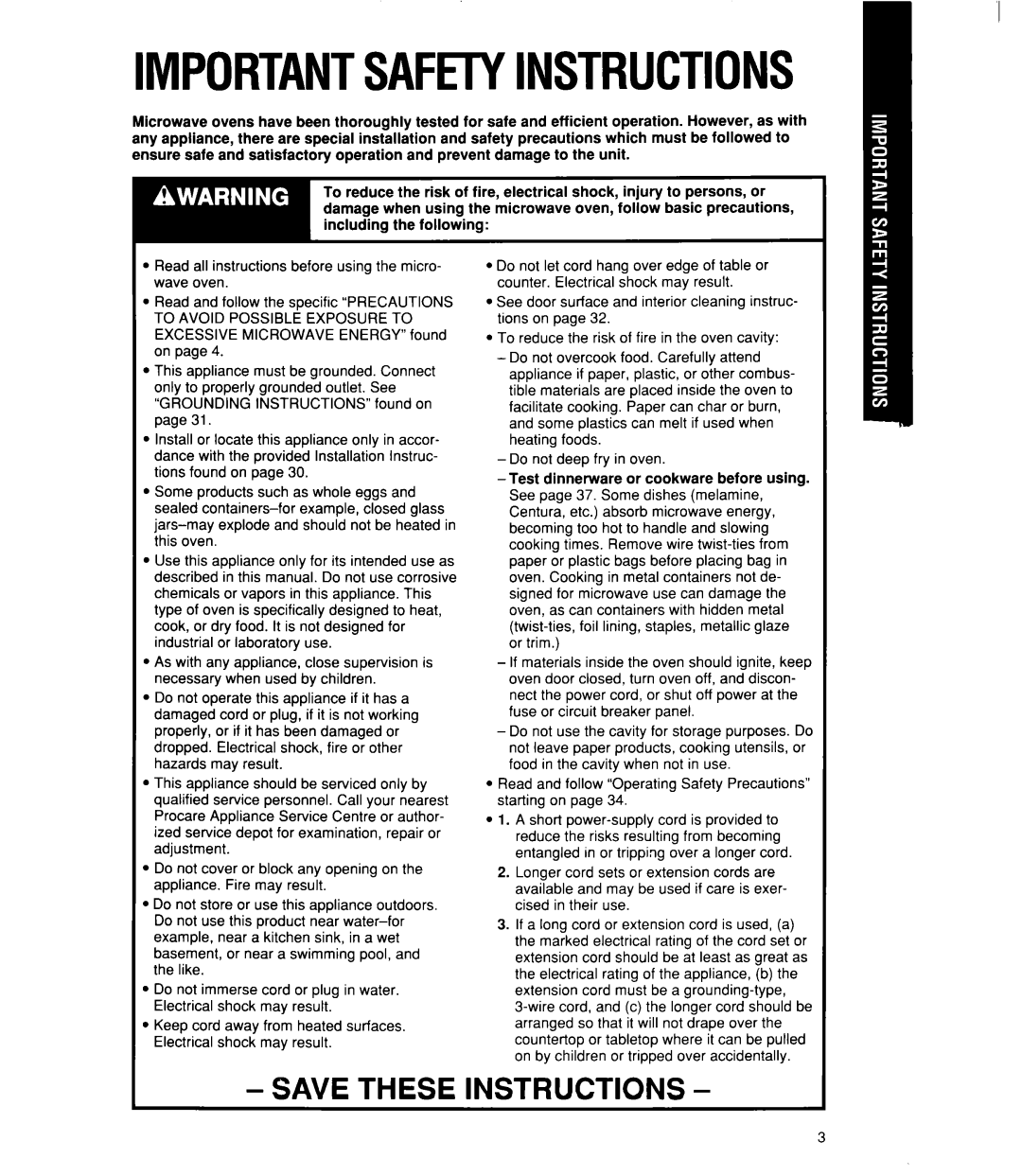
IMPORTANTSAFETYINSTRUCTIONS
Microwave ovens have been thoroughly tested for safe and efficient operation. However, as with any appliance, there are special installation and safety precautions which must be followed to ensure safe and satisfactory operation and prevent damage to the unit.
To reduce the risk of fire, electrical damage when using the microwave including the following:
shock, injury to persons, or oven, follow basic precautions,
l
l
l
l
l
l
l
l
l
l
l
l
l
Read all instructions before using the micro- wave oven.
Read and follow the specific “PRECAUTIONS TO AVOID POSSIBLE EXPOSURE TO EXCESSIVE MICROWAVE ENERGY” found on page 4.
This appliance must be grounded. Connect only to properly grounded outlet. See “GROUNDING INSTRUCTIONS” found on page 31.
Install or locate this appliance only in accor- dance with the provided Installation Instruc- tions found on page 30.
Some products such as whole eggs and sealed
Use this appliance only for its intended use as described in this manual. Do not use corrosive chemicals or vapors in this appliance. This type of oven is specifically designed to heat, cook, or dry food. It is not designed for industrial or laboratory use.
As with any appliance, close supervision is necessary when used by children.
Do not operate this appliance if it has a damaged cord or plug, if it is not working properly, or if it has been damaged or dropped. Electrical shock, fire or other hazards may result.
This appliance should be serviced only by qualified service personnel. Call your nearest Procare Appliance Service Centre or author- ized service depot for examination, repair or adjustment.
Do not cover or block any opening on the appliance. Fire may result.
Do not store or use this appliance outdoors. Do not use this product near
Do not immerse cord or plug in water. Electrical shock may result.
Keep cord away from heated surfaces. Electrical shock may result.
*Do not let cord hang over edge of table or counter. Electrical shock may result.
l See door surface and interior cleaning instruc- tions on page 32.
lTo reduce the risk of fire in the oven cavity:
-Do not overcook food. Carefully attend appliance if paper, plastic, or other combus- tible materials are placed inside the oven to facilitate cooking. Paper can char or burn, and some plastics can melt if used when heating foods.
-Do not deep fry in oven.
-If materials inside the oven should ignite, keep oven door closed, turn oven off, and discon- nect the power cord, or shut off power at the fuse or circuit breaker panel.
-Do not use the cavity for storage purposes. Do not leave paper products, cooking utensils, or food in the cavity when not in use.
l Read and follow “Operating Safety Precautions” starting on page 34.
*1. A short
2.Longer cord sets or extension cords are available and may be used if care is exer- cised in their use.
3.If a long cord or extension cord is used, (a) the marked electrical rating of the cord set or extension cord should be at least as great as the electrical rating of the appliance, (b) the extension cord must be a
- SAVE THESE INSTRUCTIONS -
